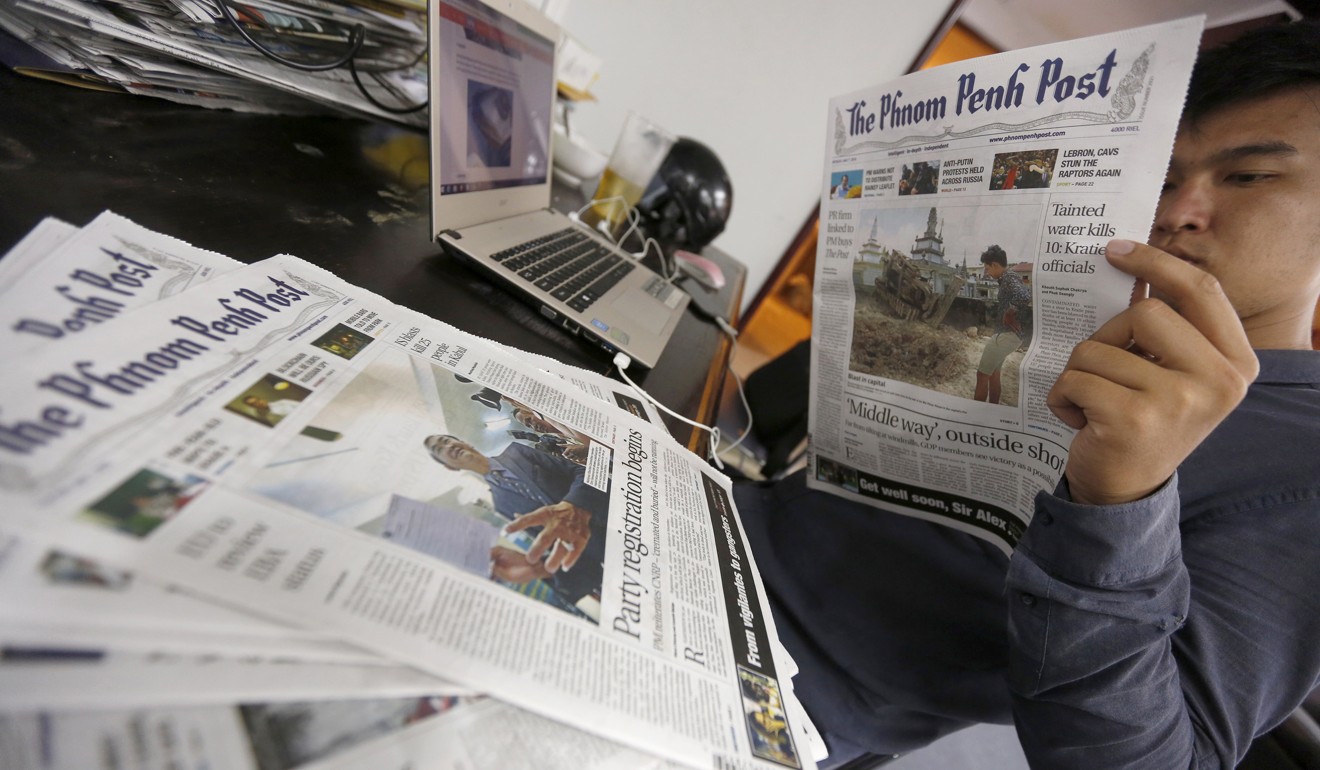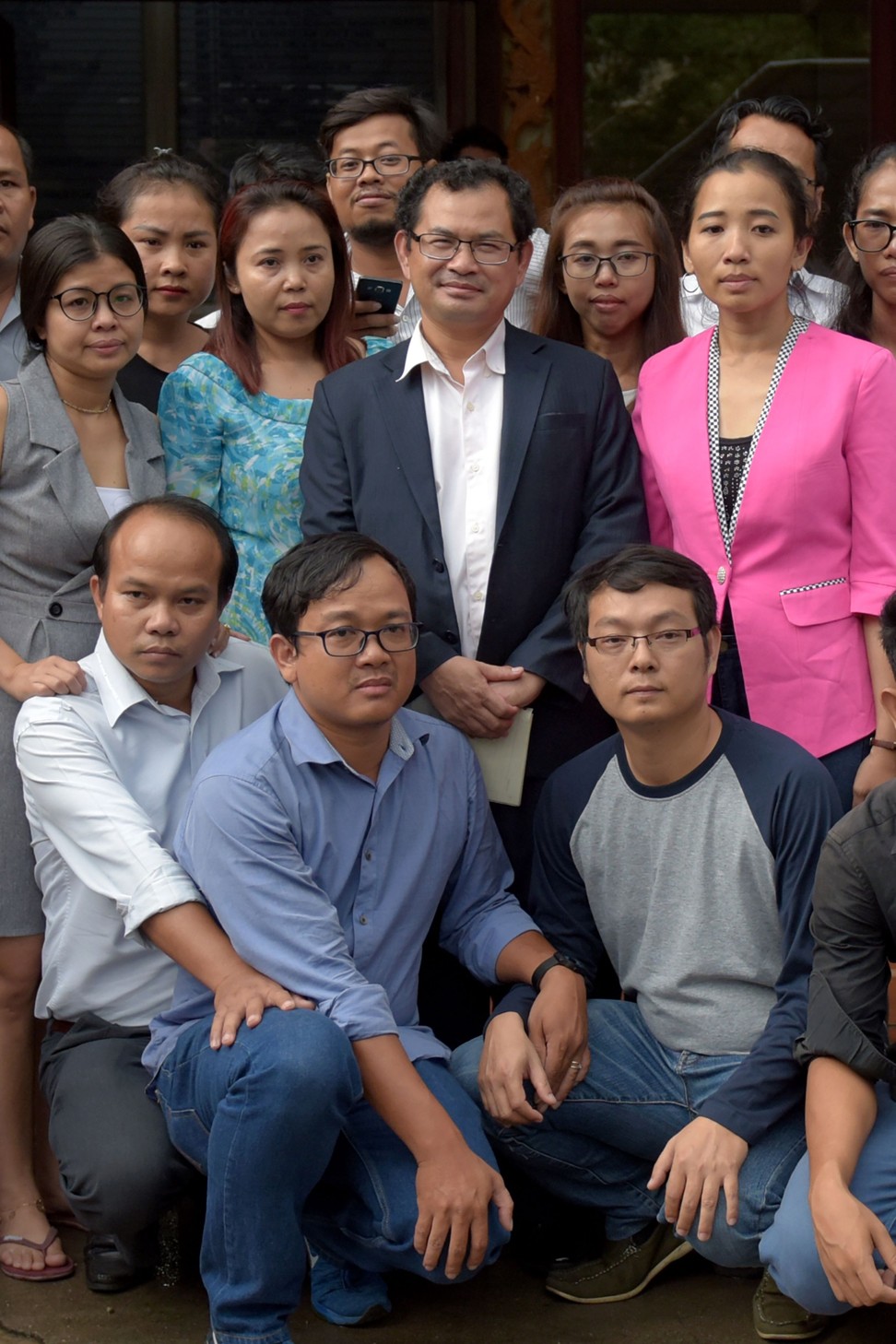
New Malaysian owner of Cambodia’s Phnom Penh Post fires editor after story about sale, staff resign in protest
The 26-year-old Phnom Penh Post was sold to Malaysian investor Sivakumar S. Ganapathy over the weekend for an unknown sum
Cambodia’s last independent newspaper is running on a skeleton staff with no foreign reporters or editors after a dispute erupted with the company’s new Malaysian owner over a story linking him to the country’s ruler Hun Sen.
Seven more staff walked out of The Phnom Penh Post on Tuesday a day after the paper’s new owner Sivakumar S. Ganapathy’s sacked editor-in-chief Kay Kimsong for refusing to remove a “damaging article” detailing links between Sivakumar’s public relations firm Asia PR and the prime minister.
Five senior staff, including national reporter Ananth Baliga and business editor Brendan O’Byrne who wrote the piece, also resigned in protest on Monday.
“This basically means we have no foreign news reporters or editors at the Phnom Penh Post. A sad day. Can’t say how much admiration I have for Khmer reporters who are staying despite everything,” said Post journalist Erin Handley on Twitter.
By Tuesday evening, the story in question was removed from the website and replaced with another about the staff walkout. Baliga tweeted a photo of the print version of the story, saying it was “watered down”.
“A lot of us are heartbroken today,” Handley said earlier.
“Our new owners decided that our news story that pointed out questionable links between them and the Cambodian and Malaysian governments was damaging to their reputation … [and said] ‘we want it taken down’.”
The article reported Asia PR website content, which stated one of its government-related projects was “Cambodia and Hun Sen’s entry into the government”, and the firm “handles covert PR”.
The Post’s story also said Sivakumar wrote a biography of Sarawak state’s Chief Minister Abdul Taib Mahmud titled “Taib – the Visionary”. Taib was described as “highly corrupt” by a former political section chief of the US embassy in Kuala Lumpur, according to leaked cables published by WikiLeaks in 2011.

Sivakumar slammed the article as a “disgrace and insult”, saying the links between him and the Malaysian and Cambodian governments were “totally untrue and cannot be concluded based on what took place between [Asia PR – of which Sivakumar is the CEO] and the client more than 25 years ago.”
Sivakumar’s representative, Cambodian lawyer Ly Tayseng, said the article was “factually wrong”.
The newspaper’s staff’s intention was “to make [Sivakumar] look bad while ignoring the context and that is not acceptable,” he said.

Kay Kimsong, who had worked at the The Post for 10 years, told Associated Press that the representative of the newspaper’s new owner had told him he made a big mistake by allowing the publication of the article.
“The owner has complained that I allowed the editorial team to publish the story of the buying and selling of the paper that affected to the interests of the paper as well as the image of the owner,” Kay Kimsong said.
“I have done nothing wrong. I acted according to journalistic professionalism, but the company said they cannot keep me in my position.”
He said he would not challenge his termination in court because the new owner said he would be compensated under the labour law.
Former majority shareholder Bill Clough announced the sale of The Post on May 6 following a multimillion-dollar tax dispute with the Cambodian government that echoed the shuttering of The Cambodia Daily in September 2017 over a tax bill of over US$6 million.
The amount Sivakumar paid and what has happened to the tax bill is unknown.
The events came weeks after Cambodia dropped 10 places in the 2018 World Press Freedom Index, prompting concern about freedom of speech in the country. In the past year the Cambodian government closed The Cambodia Daily and dissolved the main opposition party in a wide-ranging crackdown.
Hun Sen’s government has closed virtually all independent media and convinced the courts to dissolve the only credible opposition party ahead of July’s election.
A third English-language newspaper in Cambodia, Khmer Times, is owned by a Malaysian and is seen as an uncritical voice that is close to the government.
Two Cambodian Radio Free Asia reporters remain in jail on espionage charges after being denied bail last month. The US-funded media outlet closed in September citing government repression.
An Overseas Press Club of Cambodia member said foreign journalists have also faced difficulty gaining press passes and work permits. Under new rules, long-term visas will not be available to people without work permits.
Nathan Thompson is President of the Overseas Press Club of Cambodia

